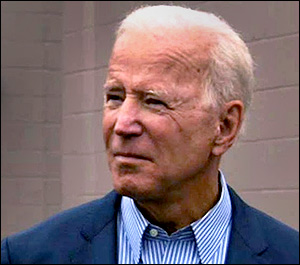By Jim Ellis
 Oct. 31, 2019 — With six US House seats coming open in October, it’s a good time to re-set where the incumbent-less districts stand for the next election.
Oct. 31, 2019 — With six US House seats coming open in October, it’s a good time to re-set where the incumbent-less districts stand for the next election.
To review the half-dozen October happenings in this regard, in consecutive order Reps. Nita Lowey (D-NY) announced her retirement, Elijah Cummings (D-MD) passed away, Francis Rooney (R-FL) declared that he would not seek re-election, Tulsi Gabbard (D-HI) decided not to make another congressional run in order to concentrate on her presidential campaign, Katie Hill (D-CA) resigned in scandal, and Greg Walden (R-OR) released his statement saying he will not seek a 12th term in office.
Within the aggregate group of 30 opens, we now see four vacancies. In addition to Rep. Cummings passing away and Hill resigning, two more seats are also headed to special elections because of resignations. Those lie in New York (Chris Collins-R) and Wisconsin (Sean Duffy-R).
Two of the four have election calendars. The MD-7 seat will see a primary on Feb. 4 with a general April 28. The WI-7 district will hold a primary on Feb. 18, and a special general on May 12. Govs. Andrew Cuomo (NY) and Gavin Newsom (CA) will soon set special voting calendars in their states. Gov. Cuomo, who let the 25th District sit vacant for almost a year in 2018 after Rep. Louise Slaughter passed away, chose to fill the seat concurrently with the regular election cycle. The governor has already said he would like to follow the same course this year, but the law won’t allow such a long vacancy.
At this point, the Wisconsin and New York seats should remain Republican, but the GOP has a spotty record in holding NY districts in special elections including this 27th District (then numbered 26), which went Democratic that last time it went to special election in 2011. The Maryland seat will remain Democratic.
Though the House opens now reach 30 seats, a relative few are seriously in play for the districts’ next election. Of the majority Democrats’ nine open seats, seven are considered safe and the next Democratic nominee is a lock to win in each circumstance. For the GOP, which currently holds 21 of the 30, a total of 13 will assuredly elect another Republican.
In terms of competitive seats, the Democrats only risk two. The Hill seat in California is marginal and certainly competitive in an open special election. Democrats have carried the district in two of the last three presidential elections, but Republicans have won three of the four congressional elections in the current configuration during the decade.
The other is IA-2, the seat from which Rep. David Loebsack (D-Iowa City) is retiring. The 2nd District is generally reliably Democratic, but President Trump carried it in 2016, 49-45 percent. Democrats are coalescing behind former state Senator and 2018 lieutenant governor nominee Rita Hart as their candidate. It is here where former Illinois Rep. Bobby Schilling (R), hopes to make a serious run at an upset. First, however, he must clear the GOP primary and faces state Sen. Marianette Miller-Meeks (R-Ottumwa) who will be making her fourth run for the US House.






